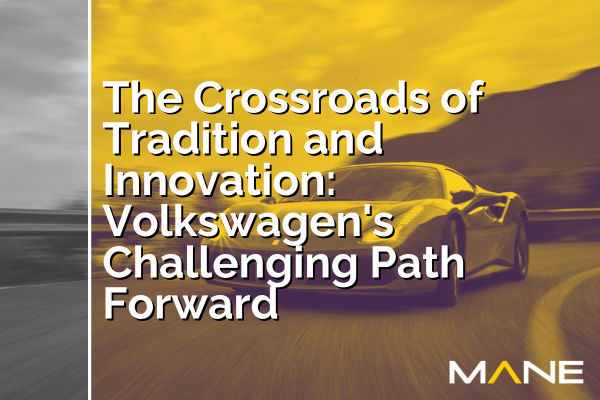The Crossroads of Tradition and Innovation: Volkswagen's Challenging Path Forward
30 Sept, 20242minsIn a startling turn of events that's sent shockwaves through the automotive industry, Vo...

In a startling turn of events that's sent shockwaves through the automotive industry, Volkswagen Group, the venerable German automaker, has announced it can no longer rule out plant closures in its homeland. This revelation comes as the company grapples with the need to slash costs at its core VW brand by several billion euros.
For decades, Volkswagen has been synonymous with German engineering prowess and industrial might. Its sprawling factories, particularly the iconic Wolfsburg plant, have been more than mere production facilities; they've been symbols of Germany's economic resilience and technological leadership. However, the winds of change are blowing fiercely through the automotive sector, and even giants like VW are finding themselves forced to adapt or risk being left behind.
The company's works council has dropped a bombshell, suggesting that one large vehicle plant and one component factory in Germany are now considered obsolete. This stark assessment underscores the magnitude of the challenges facing not just Volkswagen, but the entire traditional automotive industry.
At the heart of this upheaval lies a perfect storm of factors. The inexorable shift towards electrification is fundamentally altering the landscape of vehicle production. Electric cars, with their simpler powertrains and fewer moving parts, require different manufacturing processes and skillsets. This transition is rendering some longstanding production lines and worker expertise obsolete almost overnight.
Moreover, the global push for sustainability and reduced carbon emissions is forcing automakers to reimagine their entire business models. Volkswagen, like its peers, is investing heavily in electric vehicle technology and battery production. These necessary investments are straining balance sheets already under pressure from increased competition and economic uncertainties.
The spectre of job losses looms large over this scenario. Germany's automotive sector has long been a cornerstone of the country's economy, providing stable, well-paying jobs for generations. The potential closure of plants strikes at the very heart of communities built around these industrial hubs. It's not just jobs at stake, but a way of life and a source of national pride.
Yet, Volkswagen's leadership finds itself in an unenviable position. The company must navigate the treacherous waters between maintaining its competitive edge in a rapidly evolving market and honouring its deep-rooted commitments to its workforce and the German industrial tradition. It's a delicate balancing act with no easy solutions.
The situation at Volkswagen is emblematic of the broader challenges facing legacy automakers worldwide. As nimble startups and tech giants muscle into the automotive space with innovative electric and autonomous vehicle technologies, established players are being forced to reinvent themselves at breakneck speed.
This transformation is not just about swapping internal combustion engines for electric motors. It's a fundamental reimagining of what a car company should be in the 21st century. The vehicles of tomorrow will be as much about software and connectivity as they are about horsepower and handling. This shift demands new competencies and a willingness to disrupt one's own successful business model before external forces do it for you.
For Volkswagen, the road ahead is fraught with difficult decisions. Any moves to close plants or cut jobs will undoubtedly face fierce resistance from unions and potentially from the German government itself. The company must find ways to streamline its operations and reduce costs while still investing heavily in future technologies.
There may be opportunities amidst these challenges. Retraining programmes could help transition workers from traditional manufacturing roles to the high-tech jobs of the future. Repurposing existing facilities for electric vehicle production or battery manufacturing could preserve jobs while positioning the company for long-term success.
Volkswagen's predicament serves as a cautionary tale for other industries facing technological disruption. It highlights the need for constant innovation and the courage to make tough choices, even when they challenge long-held assumptions and practices.
As Volkswagen charts its course through these turbulent times, the eyes of the automotive world—indeed, the entire manufacturing sector—will be watching closely. The decisions made in Wolfsburg and other VW strongholds will reverberate far beyond Germany's borders, potentially setting precedents for how large, established companies can reinvent themselves in the face of seismic technological shifts.
The coming months and years will be critical for Volkswagen. Can it successfully transform itself while preserving the essence of what has made it a global automotive powerhouse? Or will it be forced to make painful cuts that fundamentally alter its relationship with its workforce and its home country?
One thing is certain: the Volkswagen that emerges from this period of upheaval will be a very different company from the one we've known for generations. Whether that new incarnation can maintain VW's position at the forefront of the automotive industry remains to be seen. But for now, the only constant is change, and Volkswagen finds itself at the very eye of the storm.


